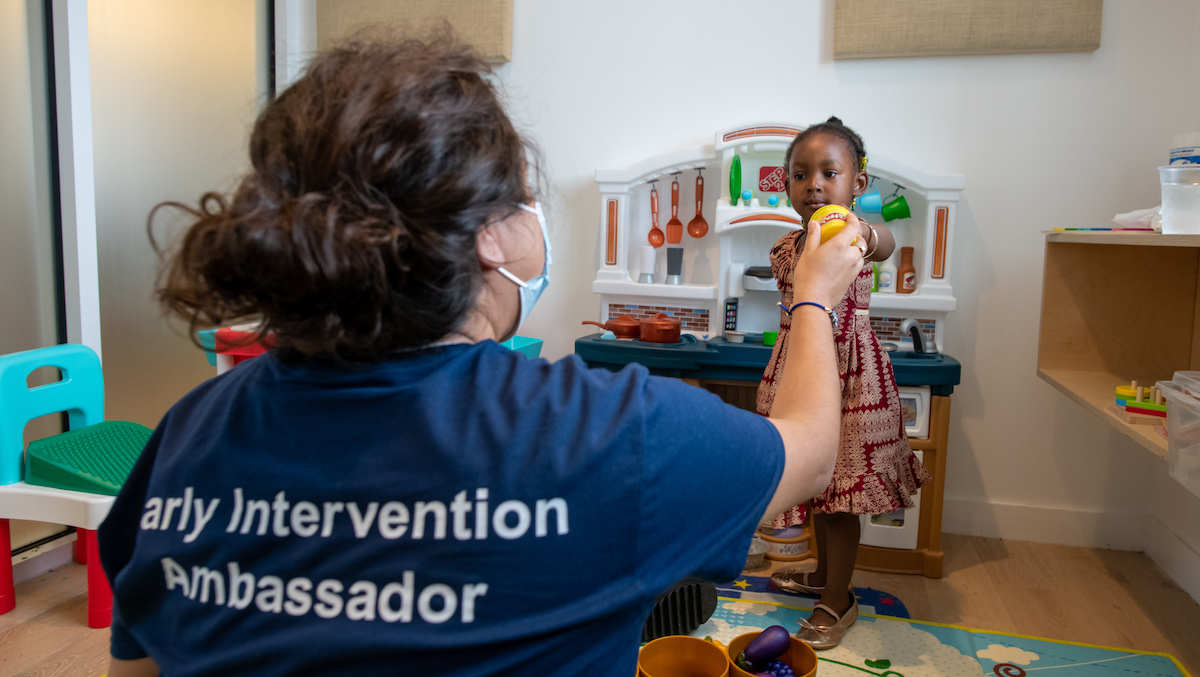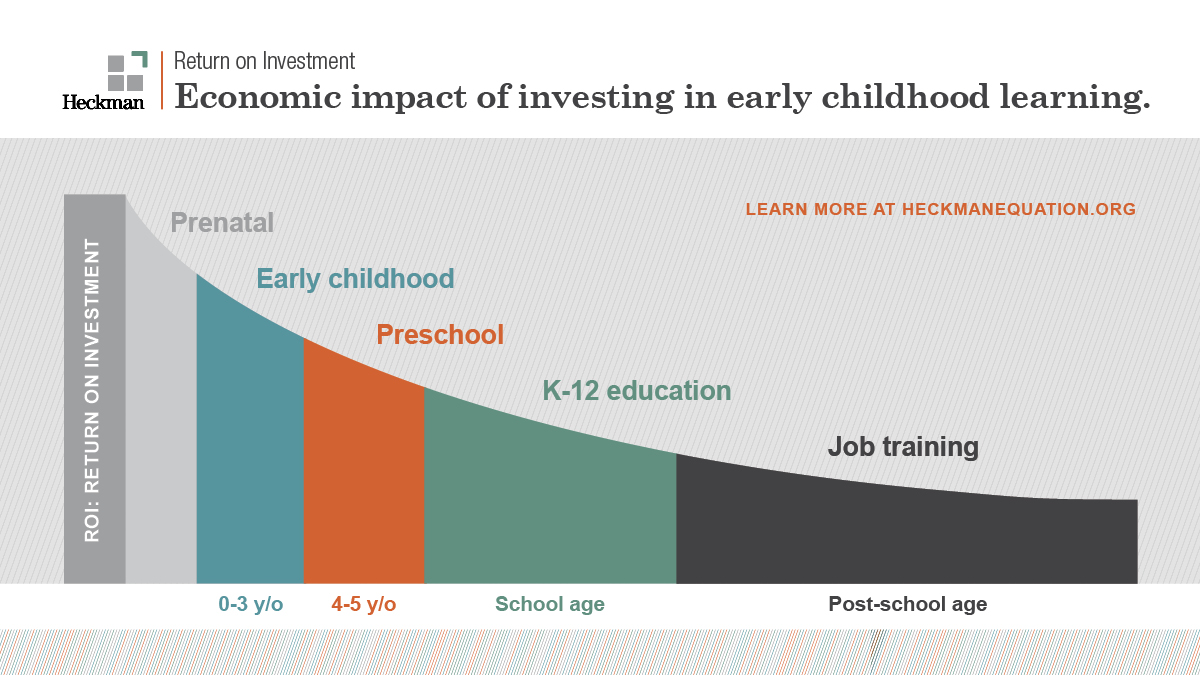The Case for Early Childhood Investment

The $50 million Fund for Early Learning launched in 2016 with a big goal: transform New York City into an “early learning metropolis” by supporting community partnerships’ efforts to combat the effects of poverty in children ages 0-3. With another challenge gearing up – FUEL for 50, where organizations can apply for a $10 million pool of funding – it begs the question, why the emphasis on early education and young children?
We might assume that at this stage in life, babies and toddlers nationwide are nearly identical, their schedules mostly consisting of sleeping and eating. However, Robin Hood sees everything as an early childhood concern: for example, if a religious organization provides food stability and mental health counselling to its adult members, these members in turn can be the first caregivers for an early infant. As these various ecological systems of parents, schooling, healthcare, and community work together to provide stability for the child’s growth, a focus on early childhood is necessary. It’s the most cost-effective method to fighting poverty. The investments made during this period can affect the course of life for the child. Reframed in this manner, it is clear that this goal should certainly be a priority as a cornerstone of our mission to fight inequities across working families.
James J. Heckman, a Nobel-prize winning economist and professor at the University of Chicago, seems to agree. Professor Heckman’s work uses sociology, econometrics, and psychology to explore the importance of early childhood. His “Heckman Curve,” presented below, suggests that the earliest investments in a child’s life have the highest returns. This includes controls for either public or private support compared to support in college or job-seeking. In fact, the return on investment (ROI) for early childhood investments is 13%, compared to 7-10% ROI for preschool to K-12 education.

Professor Heckman has noted similar results from studies not just in the United States, but internationally and specifically in countries with low average incomes. This is, of course, not denying the important and essential work of investing in schooling, higher education, or job training. In fact, the ubiquity of babies is largely responsible for this discrepancy. As he explains, funds focused on older children and young adults benefit those who are already motivated to take advantage of social programs – essentially self-selecting certain groups to gain most of the benefits of these investments. However, for earlier life stages, the benefits do not discriminate towards “motivated” babies. Further, the investments can compound to deliver greater results throughout the child’s development.
When introduced to his research, it is evident that FUEL’s mission and our new FUEL for 50 challenge is funding important work to attack inequity at its roots, in early childhood. While Robin Hood will continue to provide essential work for all stages of life, this is a task our organization cannot and will not overlook.
